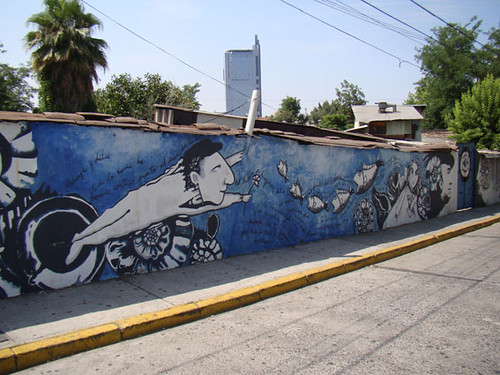In all reality, this is an anthology.
And this post is just going to be pictures of the writer that I believe, heart and soul, is the best we've ever had.
 |
| This guy. |
Maybe I'm biased because I'm partly Chilean, and it seems to be that Chileans are fervently protective of Neruda. Don't try and suggest that Keats is better than Neruda. For one, it's a blatant lie, and for another, we will probably tear your limbs off while reciting his poetry. (Violent bunch, we are. Or at least my grandfather, who glared at me when I, 12 years old and completely unfamiliar with this man, had the audacity to state that I liked Andrew Marvell.)
This book is probably one of the most prized books I own. I have salivated over this book for years and years. I stroked its cover, weeping quietly when I realised that I couldn't afford it, again.
(Look at it on Amazon, and I'll seem extremely poor. Over here it was about $50.)
And then, age 18, I received a heavy rectangular bookish package.
This book is just...
Just...
Me encanta esta libro.
Mucho, mucho, mucho.
My grandfather, holding this book, asserted the muchos.
 |
| There's something about smoking a pipe while wearing a quasi-beret-hat-whose-name-escapes-me. Adds a true air of "I am a poet. You are not. Sad for you." |
"That's true, my Natashita-ita-ita," Tata agreed solemnly. "What have I always taught you? The translator is a traitor. A traitor."
Which apparently comes from some Italian proverb. Tradurre e tradire or something like that.
This is taken off a wall in Valparaiso, Chile.
I don't know where the wall is. But it's magnificent, no?
I want to give the man hugs. If I could get a Time-Turner, I'd go back to visit Neruda.
I love all elements of his poetry. He is honest in every word he writes. He expresses amazing wisdom, but it's that wisdom tainted slightly by uncertainty that assures you it's wisdom gained by experience. You cannot separate author from work with Neruda; it comes from a place that is so deep within that unless you write yourself, you won't really understand that place. But it's that place where passion lies.
He has a depth to his work, but at face value, you can understand what he's saying. A beauty rises from the simplicity of his work, but resonates down through each level of thought.
My family - and apparently every respectable Chilean, my grandfather tells me - does not approve of his later poetry, where he became 'political' and a 'wicked Communist'. (Tata's words, not my own.) I can't find a fault at all. If it's where his heart lay, it would be a betrayal to write about anything else. There's a season for everything.
These are two of my favourite poems of his.
One day, if I can write with the beauty and honesty he does, I will be pretty darn content.
These translations are the direct ones from this anthology (and, as my father begrudgingly admitted, are very good translations of the originals).
Sonnet XVII - originally published in Cien Sonetos De Amor (1957-1959)
I don't love you as if you were a rose of salt, topaz,
or arrow of carnations that propagate fire:
I love you as one loves certain dark things,
secretly, between the shadow and the soul.
I love you as the plant that doesn't bloom and carries
the light of those flowers, hidden, within itself,
and thanks to your love the tight aroma that rose
from the earth lives in my body in darkness.
I love you without knowing how, or when, or from where
I love you directly without problems or pride:
I love you like this because I don't know any other way to love
except in this form in which I am not nor are you,
so close that your hand upon my chest is mine,
so close that your eyes close with my dreams.
translated by Mark Eisner
Poetry - originally published in Memorial de Isla Negra (1962-1964)
And it was that age... poetry arrived
in search of me. I don't know, I don't know where
it came from, from winter or a river.
I don't know how or when,
no, they were not voices, they were not
words, not silence,
but from a street it called me,
from the branches of night,
abruptly from the others,
among raging fires
or returning alone,
there it was, without a face,
and it touched me.
I didn't know what to say, my mouth
had no way
with names,
my eyes were blind.
Something knocked in my soul,
fever or forgotten wings,
and I made my own way,
deciphering
that fire,
and I wrote the first, faint line,
faint, without substance, pure
nonsense,
pure wisdom
of someone who knows nothing;
and suddenly I saw
the heavens
unfastened
and open,
planets,
palpitating plantations,
the darkness perforated,
riddled
with arrows, fire, and flowers,
the overpowering night, the universe.
And I, tiny being,
drunk with the great starry
void,
likeness, image of
mystery,
felt myself a pure part
of the abyss.
I wheeled with the stars.
My heart broke loose with the wind.
translated by Alastair Reid
Mark Strand from the New Yorker said it perfectly:
There is something about Neruda - about the way he glorifies experience, about the spontaneity and directness of his passion - that sets him apart from the other poets..."
And Gabriel Garcia finished this thought with one of the most brilliant assertions I've heard:
The greatest poet of the twentieth century - in any language.Indeed, Neruda more than fills the shoes of the greatest poet that we've seen in recent years.
If you read no other poetry anthology, read this one. Eschew all those others; this man knows words.





No comments:
Post a Comment